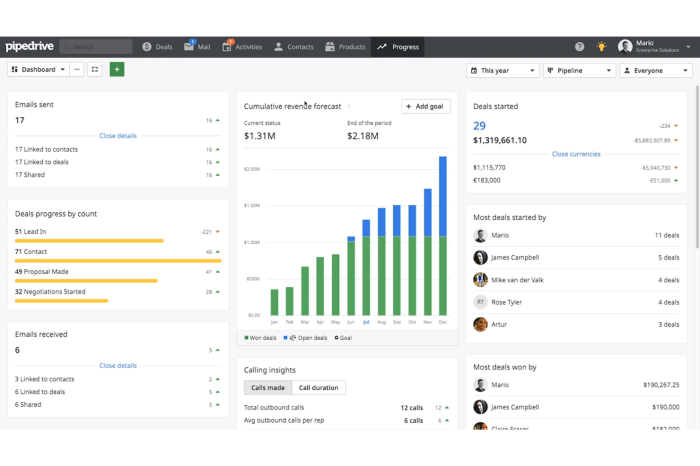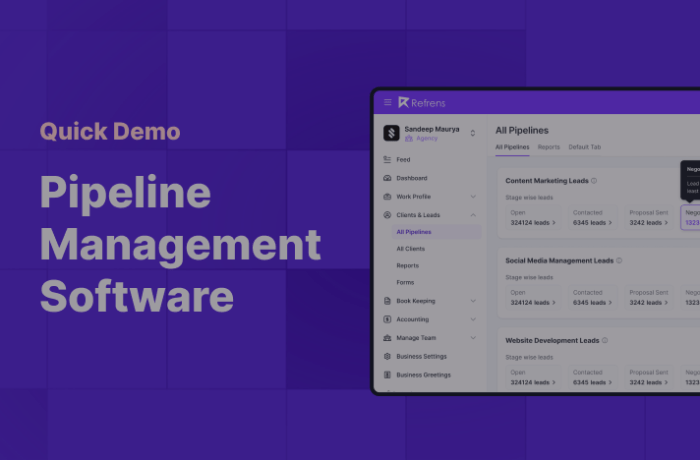Sales pipeline management software is a crucial tool for businesses of all sizes looking to streamline their sales processes and boost revenue. It allows sales teams to track leads, manage opportunities, and forecast future revenue with greater accuracy. This comprehensive guide dives deep into the world of sales pipeline management software, exploring its features, benefits, and how to choose the right solution for your needs.

Source: revopsteam.com
We’ll also touch on important considerations like implementation and ongoing maintenance.
Understanding Sales Pipeline Management Software
At its core, sales pipeline management software helps visualize and manage the entire sales process, from initial lead generation to closing deals. This visual representation, often in the form of a pipeline diagram, allows sales teams to see where deals are in the process and identify potential bottlenecks or areas needing improvement. Key features typically include lead tracking, opportunity management, sales forecasting, and reporting.
Key Features of Sales Pipeline Management Software
- Lead Management: Capturing, organizing, and qualifying leads is crucial. Good software will allow you to categorize leads by source, stage, and other relevant criteria. This helps prioritize efforts and allocate resources effectively.
- Opportunity Management: Tracking the progress of each sales opportunity through various stages (e.g., prospecting, qualification, proposal, negotiation, closing) is vital. The software should allow you to record relevant details, deadlines, and associated communication.
- Sales Forecasting: Accurately predicting future revenue is a significant benefit. Sophisticated sales pipeline software uses historical data and current pipeline activity to provide insightful forecasts, allowing for better financial planning and resource allocation.
- Reporting and Analytics: Generating reports on sales performance, identifying top performers, and pinpointing areas for improvement are key. This data-driven approach enables you to refine your sales strategies.
- Collaboration and Communication: Modern sales pipeline software often integrates communication tools, allowing seamless communication between sales reps, managers, and other stakeholders.
Benefits of Using Sales Pipeline Management Software
Implementing sales pipeline management software offers numerous advantages. These range from improved sales forecasting and increased efficiency to enhanced team collaboration and reduced administrative overhead. Here are some of the key benefits:
Improved Sales Forecasting and Planning
Accurate sales forecasting is essential for informed decision-making. Sales pipeline management software allows for precise estimations of future revenue based on the current pipeline. This enables better budget allocation and resource planning. This, in turn, leads to improved profitability and business growth.
Increased Sales Efficiency and Productivity
Streamlined processes and improved visibility into the sales process result in increased sales efficiency. The software automates many tasks, freeing up sales reps to focus on high-value activities, such as building relationships and closing deals.
Enhanced Team Collaboration and Communication, Sales pipeline management software
Centralized data and streamlined communication within sales teams boost collaboration. Real-time visibility into the pipeline allows for better coordination and ensures that everyone is on the same page, maximizing productivity and minimizing errors.
Choosing the Right Sales Pipeline Management Software
Selecting the ideal sales pipeline management software is crucial for success. Consider your specific business needs, budget, and team size when making your decision. Several factors should be taken into account when evaluating options:
Features, Integrations, and Scalability
Assess the specific features offered by different software options and how they align with your business requirements. Ensure that the chosen solution integrates well with your existing CRM (Customer Relationship Management) systems and other essential tools. Crucially, consider scalability to accommodate future growth and changing needs.
Implementing and Maintaining Sales Pipeline Management Software
Successful implementation of sales pipeline management software requires careful planning and execution. Training your sales team on how to effectively use the software is paramount. Ongoing maintenance and updates are also crucial to ensure the system remains efficient and up-to-date with the latest features and industry best practices.
Frequently Asked Questions (FAQ)
- Q: What is the cost of sales pipeline management software?
A: Pricing varies significantly depending on the chosen platform, features, and user volume. Some are subscription-based, others are one-time purchases.
- Q: How long does it take to implement sales pipeline management software?
A: Implementation timelines depend on the complexity of the system and the extent of training required. Some implementations can take a few weeks, while others might span several months.
- Q: How can I integrate sales pipeline management software with my CRM?
A: Many sales pipeline management solutions offer integration capabilities with leading CRM systems. Check the specific integration options provided by the software you are considering.
- Q: What are some of the top sales pipeline management software providers?
A: Some popular options include Salesforce, HubSpot, Pipedrive, Zoho CRM, and others.
Conclusion
Sales pipeline management software is a powerful tool that can significantly enhance sales performance. By streamlining processes, improving forecasting, and boosting team collaboration, it empowers businesses to achieve their revenue goals. Careful consideration of your needs and a well-defined implementation strategy are key to reaping the full benefits of this essential technology.

Source: refrens.com
Call to Action: Ready to elevate your sales process? Explore the top sales pipeline management software solutions today and discover how they can propel your business forward. Visit [insert link to relevant resource/website here] to learn more.
FAQs
What is the difference between a CRM and sales pipeline management software?
While both CRM (Customer Relationship Management) and sales pipeline management software help manage customer interactions, CRM focuses on the overall customer relationship, including marketing and service activities. Sales pipeline management software is more focused on the specific sales process, from lead generation to closing the deal. It’s often a dedicated module or integration within a broader CRM system.
How much does sales pipeline management software cost?
Pricing for sales pipeline management software varies significantly depending on features, the number of users, and the chosen vendor. Some providers offer tiered pricing models, while others may have custom pricing based on individual needs. It’s essential to evaluate your specific requirements and compare different options to find the best value for your budget.

Source: strongfamilyofamerica.org
What are some common integrations with other business tools?
Many sales pipeline management software platforms integrate with other business tools, such as email marketing platforms, marketing automation tools, and project management software. This integration streamlines workflows and enhances data sharing across different departments.